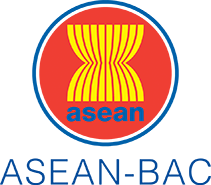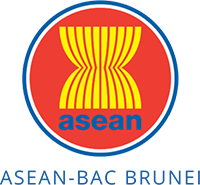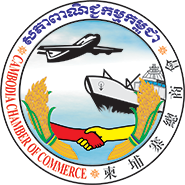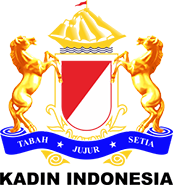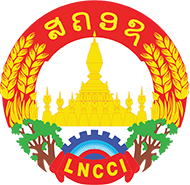summary
November 2nd 2021
7th Webinar: Promoting Smart City in ASEAN region with Japan’s Solution
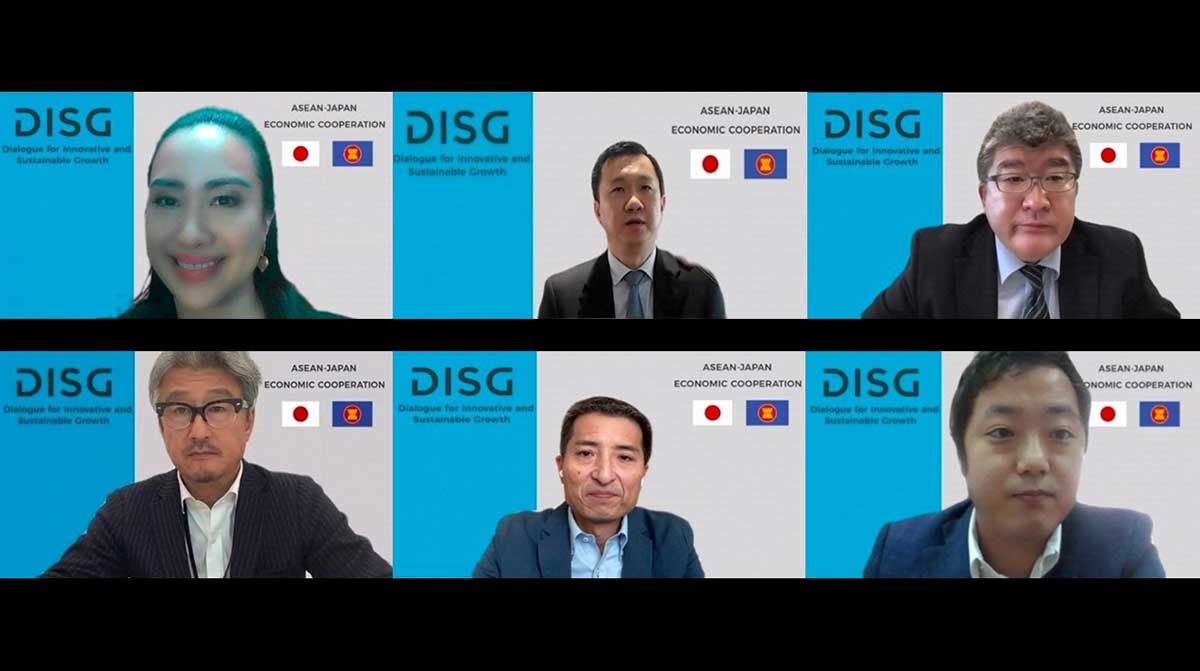
Agenda
1. Session 1: Smart and Sustainable Urbanisation in ASEAN
2. Session 2: GOJ’s activities on Smart City development
3. Session 3: Japanese companies’ activities in Smart City
4. Session 4: Relevant Asia DX Projects between ASEAN and Japan
Speaker
-
Mr. Lim Chze Cheen
Head of ASEAN Connectivity Division, ASEAN Secretariat -
Mr. Hiratsuka Nobuyuki
Deputy Director-General for International Projects Promotion, Trade and Economic Cooperation Bureau, METI, Japan -
Mr. Hirose Masayoshi
General Manager, Social Infrastructure Development Department, Infrastructure & Healthcare Division, Sojitz Corporation, Japan -
Mr. Suyama Shinji
General Manager, Project Management Group, International Business Strategy Headquarters, Tokyu Corporation, Japan -
Mr. Wada Yuhei
Chief Representative, AMEICC Secretariat
Moderator
-
Ms. Ayumi Kalthida Tada
Director of Public Relations, AMEICC Secretariat
Webinar Summary
(Session 1: Smart and Sustainable Urbanisation in ASEAN)
Mr. Lim Chze Cheen, Head of ASEAN Connectivity Division, ASEAN Secretariat, presented on the progress of ASEAN Smart Cities Network (ASCN) and implementation of the ASEAN Sustainable Urbanisation Strategy (ASUS). He further highlighted the significance of ASCN serving as collaborative platform where cities work together to improve lives of ASEAN people, promote new business opportunities as well as innovative and smart cities development. ASUS was also introduced which consists of the strategy with toolkits to support local governments in ASEAN as well as to provide foundation of a knowledge to help ASEAN cities across the network towards achieving sustainable urbanization.
(Session 2: GOJ’s activities on Smart City development)
Mr. Hiratsuka Nobuyuki, Deputy Director-General for International Projects Promotion, Trade and Economic Cooperation Bureau, METI, Japan, presented the Japanese policies for the overseas development on smart city as well as the substantive outcomes of the recent ASEAN-Japan Smart Cities Network High-Level Meeting by giving the example of a smart city in Japan. The key role of Japan Association for Smart Cities in ASEAN (JASCA) role in supporting the smart cities in ASEAN as well as a cooperative measure so-called the Smart City supported by Japan ASEAN Mutual Partnership (Smart-JAMP) were also highlighted. He also gave a brief on certain examples of Japanese government support measures on feasibility studies (FS) and demonstration programmes, aiming at promoting Japanese enterprises’ engagement in smart city and supporting the simultaneous achievement of sustainable economic growth and carbon neutrality in Asia. Aside from that, a business platform so-called J-Bridge launched by METI and JETRO were also introduced in aim to support collaboration between Japan and overseas enterprises where smart city is one of the priority fields.
(Session 3: Japanese companies’ activities in Smart City)
Mr. Hirose Masayoshi, General Manager, Social Infrastructure Development Department, Infrastructure & Healthcare Division, Sojitz Corporation, Japan, explained how Sojitz has developed a wide range of businesses to continuously expand the business areas. Mr. Hirose introduced a smart city in Deltamas city with Sojitz's experience-sharing on this project. Sojitz has developed and contributed to the smart city programme in Deltamas city, as one of the world largest urban development industrial parks, partnering between Sojitz and Sinarmas and comprising of multiple segments such as residents, commercial businesses, industries, governmental offices and educational institutions, and medical services. Sojitz defines the concept of the city as "Transit Ready Downtown”, which constructs an urban operational system and integrated industrial hub in the city. Deltamas city is reckoned as a concept showcase of smart city with four major segments focusing on digital, green, security, and mobility.
Mr. Suyama Shinji, General Manager, Project Management Group, International Business Strategy Headquarters, Tokyu Corporation, Japan, gave an overview of Tokyu Corporation and introduced Tokyu’s urban sustainable development project in Binh Duong City, Vietnam as area called “Tokyu Garden City”. This project is a joint venture with a local company BECAMEX IDC to work on urban development with Tokyu’s expertise acquired through the development of “Tokyu Tama Garden City” in Japan. Mr. Suyama also introduced some interesting Tokyu projects in urban development in Binh Duong City such as “MIDORI PARK” with the concept of living in the green, the commercial area “Hikari” with the concept of sustainability and circular economy, and “SORA gardens II” Binh Duong’s first condominium with smart home system for all units. Mr. Suyama shared a public transportation system for modal shift, called “Kaze shuttle”, to solve potential problems caused by traffic congestion in Binh Duong City and also introduced the transportation improvement project so-called “MaaS” by developing all-in-one application where users can search, book, and make payments for various transportation modes based on their needs.
(Session 4: Relevant Asia DX Projects between ASEAN and Japan)
Mr. Wada Yuhei, Chief Representative, AMEICC Secretariat, explained Asia DX projects which is one of AMEICC’s activities to promote ASEAN-Japan economic cooperation. He explained Asia DX projects’ basic scheme such as to give financial support to pilot projects between ASEAN and Japanese companies under the funding of METI, Japan, with conditions to utilize digital technology in addressing socio-economic challenges in the region in cooperation with JETRO. Mr. Wada gave some examples of Asia DX projects in AMS especially in the field of Mobility which is related to Smart City. The examples include projects conducted by SmartDrive Inc. (in Malaysia), Willer Inc. (in Vietnam), Mitsubishi Corporation (in Brunei) and Broadleaf Co., Ltd. (in the Philippines).
Session 1: Smart and Sustainable Urbanisation in ASEAN
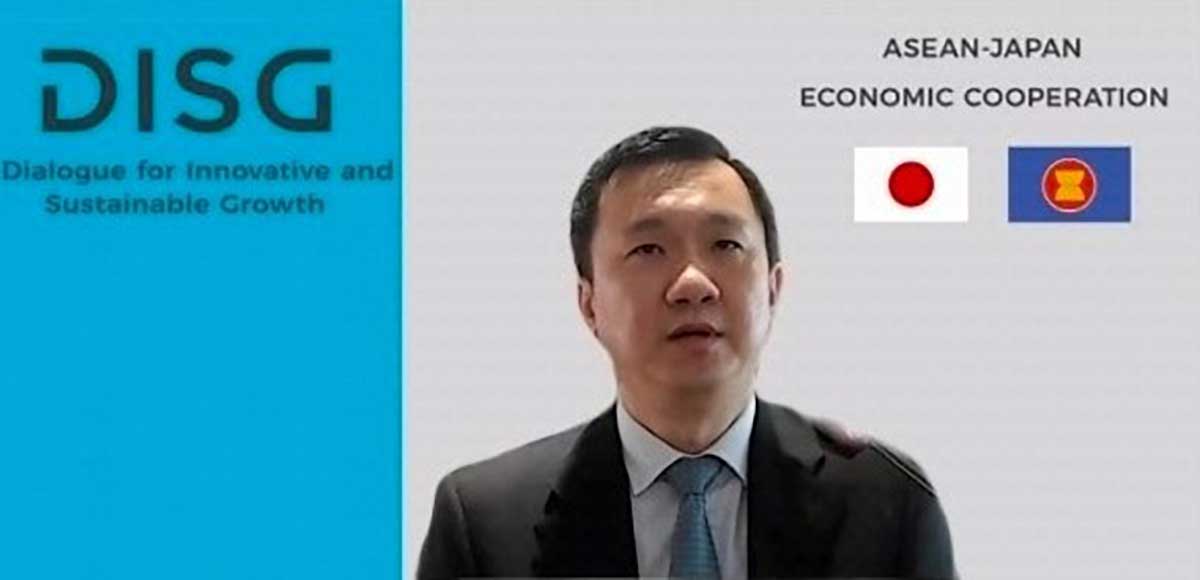
Smart and Sustainable Urbanization in ASEAN
Mr. Lim Chze Cheen, Head of ASEAN Connectivity Division, ASEAN Secretariat, presented on the progress of ASEAN Smart Cities Network and implementation of the ASEAN Sustainable Urbanisation Strategy. In developing smart and sustainable urbanization strategy in ASEAN cities, ASEAN has identified 8 mega-trends that would affect urbanization in ASEAN, including (i) rising urbanization especially in middleweight cities, (ii)more dependent on local governments for delivery of public services, (iii) emergence of digital technologies to transform cities, (iv) inequality and non-inclusive growth which COVID-19 pandemic have exacerbated this issue, (v) urban sprawl creates concerns for congestion, economic efficiency, cultural heritage, (vi) increasing resource footprint of cities, (vii) new priorities surrounding crime and the rule of law (e.g. cybersecurity), and (viii) emergence of communicable and non-communicable diseases. In recognition of these trends, technology, digital solutions as well as innovative non-technological means could be utilized to resolve these issues and enhance the quality of life of the people of ASEAN.
In this connection, the ASEAN Member States (AMS) have established an ASEAN Smart Cities Network (ASCN) serving as collaborative platform where cities work together to improve lives of ASEAN people, promote new business opportunities as well as innovative and smart cities development. Its framework serves as a non-binding guide to facilitate smart city development in each ASCN city in a manner that is specific to the city’s needs and potentials as well as its local and cultural contexts. The ASCN framework articulates the key features of ASEAN smart cities, i.e. urban systems, development focus areas, and enablers. The framework also seeks to complement existing national development plans or help build new ones.
Focusing on the implementation framework, 26 ASEAN pilot cities have been nominated by the AMS and each city has developed smart city action plan which contains the city’s vision for smart city development, chosen focus areas, strategic targets, and priority projects. The ASCN Smart City Action Plans (ASCN SCAPs) also include contact details of each city’s chief smart city office enabling potential partners to reach out to them directly. The ASCN SCAPs is also considered as a living document and the ASCN would monitor the progress of this implementation annually. Noting the stage of progress of the ASCN, as of August 2021, ASCN has established 65 projects (under ASCN Smart City Action Plans across 6 focus areas) where more than 80% of the projects are in the focus areas of Built Infrastructure, Quality Environment, Civic & Social. Since its establishment in 2018, the number of ASCN SCAP Projects has increased from 53 in 2018 to 65 in 2021. While the number of ASCN initial project partnerships between ASEAN cities and external partners has also increased from 32 to 48 in the corresponding period, the ASCN Terms of Reference (TOR) were also adopted, aiming to strengthen institutional mechanism, assisting monitoring progress of SCAP, facilitating partnerships, and preparing the network for future membership expansion. This year, the ASCN has also endorsed the concept note on Development of an ASEAN Online Portal and concept note on Development of ASEAN Smart and Sustainable City Investment Toolkit which would be implemented over the next 1-2 years.
Complementing the efforts of ASCN, the ASEAN Sustainable Urbanization Strategy (ASUS) which consists of the strategy with toolkits to support local governments in ASEAN in advancing sustainable urbanization in their respective cities as well as to provide foundation of knowledge to help ASEAN cities across the network towards achieving sustainable urbanization, was established. The ASUS shares the same 6 focus areas as ASEAN Smart Cities framework, demonstrating possible synergies and complementary efforts. The ASUS identified on 7 priority areas and 8 corresponding priority actions, taking into consideration the potential of value addition to the activities of cities and alignment with partners’ priorities.
Since the launching of ASUS in 2018, ASEAN have reached out to cities and received expressions of interest from 30 cities across ASEAN to cooperate under ASUS. With the support from GIZ and AlphaBeta, ASEAN had supported 8 cities in the development of action concepts. With the support from ASEAN-Australian Development Cooperation Program Phase II (AADCPII) and UN-Habitat, ASEAN is currently supporting other 8 cities to develop technical proposals.
When technology, city governance, and a community of people come together to improve the quality of life for everyone, partnership is the key in delivering smart and sustainable urbanization. Forging partnership with ASEAN partners such as Japan would be important to support more cities in developing action plans and high-quality project proposals. Strategies to drive implementation would involve developing more capacity building activities in planning, financing, and managing smart and sustainable city projects; nurturing interactions and facilitating learning between cities and partners; as well as working on projects that would support successive ASEAN activities to ensure sustainability. DISG is one of those activities that could be leveraged on.
(Q&A Session: Q1)
Current Challenges for Promoting Smart City in Southeast Asia
Cities are at different stages of development between and within Member States. These differences are in terms of technology adoption, policies, regulations, and digital governances. What is needed at the regional level would be support for project preparation, project financing, as well as ways to put in place the appropriate infrastructure for the cities concerned and better engagement with the community. Other challenges include emerging issues such as cyber security and privacy concerns.
(Q&A Session: Q2)
International support for accelerating Smart City Development in ASEAN region
Regarding this, it would be linked to the afore-mentioned challenges as different cities have different needs and it ranges from investing in technology, enhancing safety and security, strengthening waste management etc. What is essential is to get the basics right and develop tailor-made solutions to address the needs of these particular cities including integrated planning, evidence-based planning, access to alternative sources of project finance, as well as strategy to build capacity in terms of preparing projects undertaking feasibility assessment etc.
(Q&A Session: Q3)
Expectation for Japan’s Contribution to Promoting Smart City in the Region and Japan’s Strength
ASEAN and Japan have a longstanding cooperation including smart city in recent times. The Third ASEAN-Japan Smart Cities Network High-Level Meeting where officials, cities, solutions providers interact with each other which was recently held on 18-19 Oct 2021, is a good example of ASEAN-Japan cooperation. One of the key aspects is that the development of smart cities in Japan generally focus on social cohesion and emphasise the need to be inclusive. In this context, the need for data driven, human centric, next generation society is something that ASEAN could learn from Japan to develop more inclusive and people centric approach to the development of smart cities. The approach of integrating multiple stakeholders in working together toward achieving the goal of smart city, such as the business spirit of “Sampo-yoshi”, could be important.
(Q&A Session: Q4)
Policy reforms to be considered to enable more fundable/bankable projects
Strengthening capacity in project preparation/structuring and integrated planning is key. Enhancing coordination between regional, national and local levels will be essential. ASEAN is working with cities to develop technical proposals that can be presented to prospective partners.
Session 2: GOJ’s activities on Smart City development
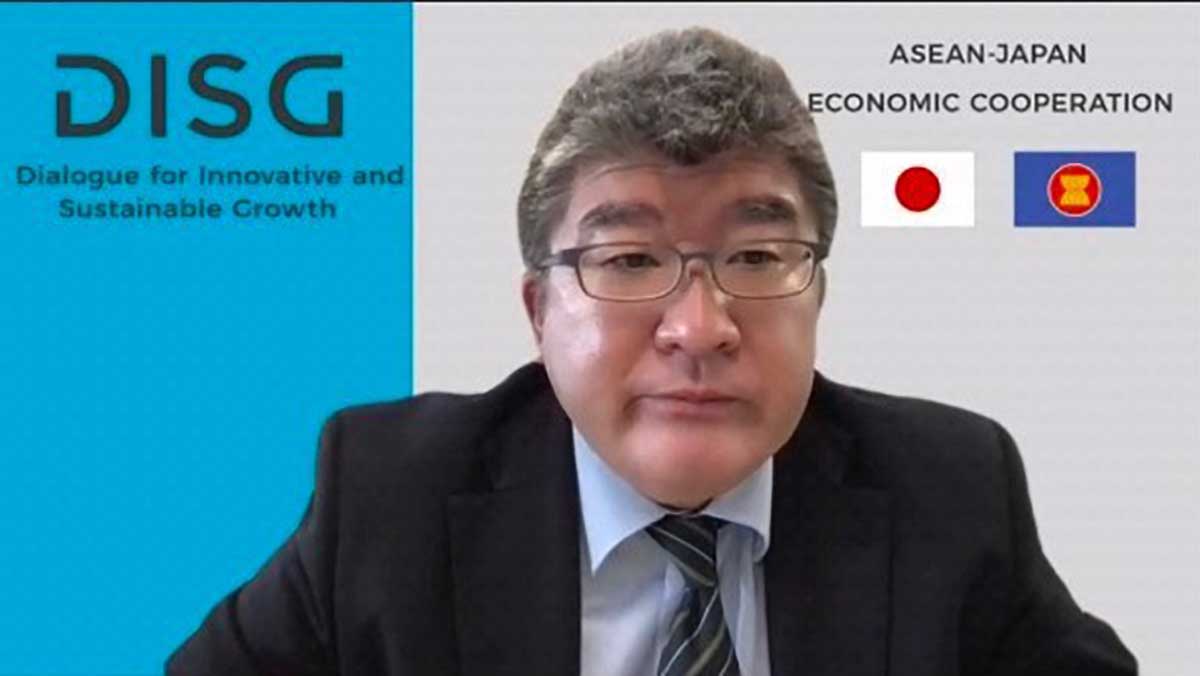
Introduction to the Government of Japan’s Activities on Smart City Development
Mr. Hiratsuka Nobuyuki, Deputy Director-General for International Projects Promotion, Trade and Economic Cooperation Bureau, METI, introduced Japan’s initiatives. Referring to the 44th Meeting on Strategy relating to Infrastructure Export and Economic Cooperation held on 7 October 2019, the policies for the overseas development on smart city were discussed which was decided (i) to strengthen the national ability to respond to cross-sectoral issues by building a platform for public private partnership, (ii) to strengthen Japan’s relationship with the partner countries from project conception (iii) to mutually complement strengths through collaboration with developed countries and international organization, (iv) to study and analyze the feasibility of individual projects to ensure project practicality, and (v) to spread the Data Free Flow with Trust (DFFT) concept agreed upon at the G20 Osaka Summit in 2019. To continuously achieve and support the smart city development in the ASEAN region, the government of Japan also actively participated in the 3rd ASEAN-Japan Smart Cities Network High-Level Meeting held on 18-19 October 2021, noting the importance of forming (i) a diverse smart city that satisfies the needs and actual conditions of each city, (ii) a smart city that is based on diverse participants, and (iii) a smart city that is open and highly transparent. An example of a smart city that is based on diverse participants was also shown i.e Shibuya City in Tokyo, which was founded as an industry-government-academia regional collaboration organization. Its organization promotes efforts for solving regional issues the city government is facing by mobilizing ideas and talents of diversified people who gather in.
In addition, the overview of Japan Association for Smart Cities in ASEAN (JASCA) was also presented by playing its central role in supporting the smart cities in ASEAN. Its main mission is to strengthen the cooperative relationship between ASEAN and Japan as JASCA is composes of 7 government ministries and agencies, 11 cities, 16 government affiliated bodies, and 266 major private enterprises in Japan. Leveraging experiences and cutting-edge technology of Japanese public and private sectors, JASCA functions as a project incubator, a communication hub, and a total solution coordinator for smart city development in ASEAN.
To take ASEAN-Japan partnership to the next stage, Japan further launched a cooperative measure so-called the Smart City supported by Japan ASEAN Mutual Partnership (Smart JAMP) last year. This initiative mainly consists of 4 pillars; (i) implementation of concrete smart city project formation targeting 10 countries and 26 cities in ASCN especially 20 projects have been selected as Smart City Project Formulation Study in the ASEAN region by the Ministry of Land, Infrastructure, Transport and Tourism (MLIT), Japan; (ii) promotion of financial support for ASEAN smart city proposals (i.e. totaling 250 billion Yen to promote smart cities in ASEAN); (iii) strengthening support for smart city in ASEAN developed by Japanese enterprises in ASEAN cities; and (iv) establishing JASCA website to disseminate information on best practices in Japan and promote info-sharing with ASEAN countries.
Certain examples of Japanese government’s support measures on feasibility studies (FS) and demonstrations were introduced including by METI to promote Japanese enterprises’ engagement from an early stage. Such FS programmes cover smart city focusing on digital technology, data utilization, demonstration programme targeted at the smart city projects contributing to achievement in energy security, economic efficiency, environmental friendliness, and safety. Noting the demonstration programmes as part of Asia Energy Transition Initiative (AETI), they target to support the simultaneous achievement of sustainable economic growth and carbon neutrality in Asia. In terms of Finance, there is another support scheme by the government of Japan through NEXI, which is an export credit agency. Furthermore, to support collaboration between Japan and overseas enterprises, METI and JETRO also launched a business platform so-called J-Bridge, on which the smart city is one of the six priority fields of support. JETRO thus held online seminars last year to bridge the information gap and deepen the business process. Through this platform, it is hoped that effective communication on smart cities and related technologies between ASEAN and Japanese enterprises will be accelerated. To conclude, the strong commitment of Japan as best partner on the smart city development in ASEAN with continued work, was reiterated.
(Q&A Session: Q1)
Japanese Government’s Perspective on the Opportunity of Smart City in Southeast Asia
It is expected that the economy of Southeast Asia would continue to grow at a high rate, and traditionally, the region has been attracted by the businesses as a production base. At present, the Southeast Asia region has become a market opportunity for more companies. In addition, digital technologies are emerging in the region to address the social issues, including poverty, and environmental related to businesses. Therefore, mobilizing investments from private sector, partnering with local companies, as well as leveraging the experiences of implementation in Japan, would be of essence. In this respect, the Japanese government would like to contribute to achieve quality of economic development and improving the quality of life.
(Q&A Session: Q2)
Plan to Promote Japan’s Engagement in Smart City Project in ASEAN region
As welcomed by the recent AEM-METI consultations, Japan has given priority to innovative and sustainable growth. Based on the priority, Japan would like to further promote investments from private sector and achieve quality economic development in ASEAN region. In doing so, it may need to ease regulations for flexible business environment as represented by the Special Economic Zones (SEZ). Electricity, communication, autonomous driving, data utilization are examples of areas that are needed to be considered. At first, Japan would like to hear from industries, as well as discuss the best course of action with AMS.
(Q&A Session: Q3)
Selling Points of Japanese Companies in this field
The Japanese companies have offered not only the infrastructure itself but also utilities and digital services to materialize the quality of life. The Japanese companies also have extensive experiences in implementation of both hardware and software. In fact, these companies would surely help the AMS to address the social issues. The responses with actions may remain as the challenges, we thus hope to contribute to industry development in AMS. By Partnering with local governments and companies, we would like to work hard on innovation to address social issues and materialize smart cities for citizens in the region.
(Q&A Session: Q4)
Project Selection Process
In fact, several projects are there, and some types of projects proposed by the ASEAN local governments. For example, some experiment projects or feasibility studies projects focusing on ASEAN’s 26 cities based on the requests from local government. Based on these requests, Japanese companies started to conduct the projects. In case of the feasibility studies projects by METI, Japan, they would be based on the requests of companies. Its selection process would be considered on the cooperation whether to be with local governments and local companies for win-win situation. However, what important is that, towards the end, the Japanese government would request collaboration between Japanese companies, local governments, and local companies.
Session 3: Japanese companies’ activities in Smart City
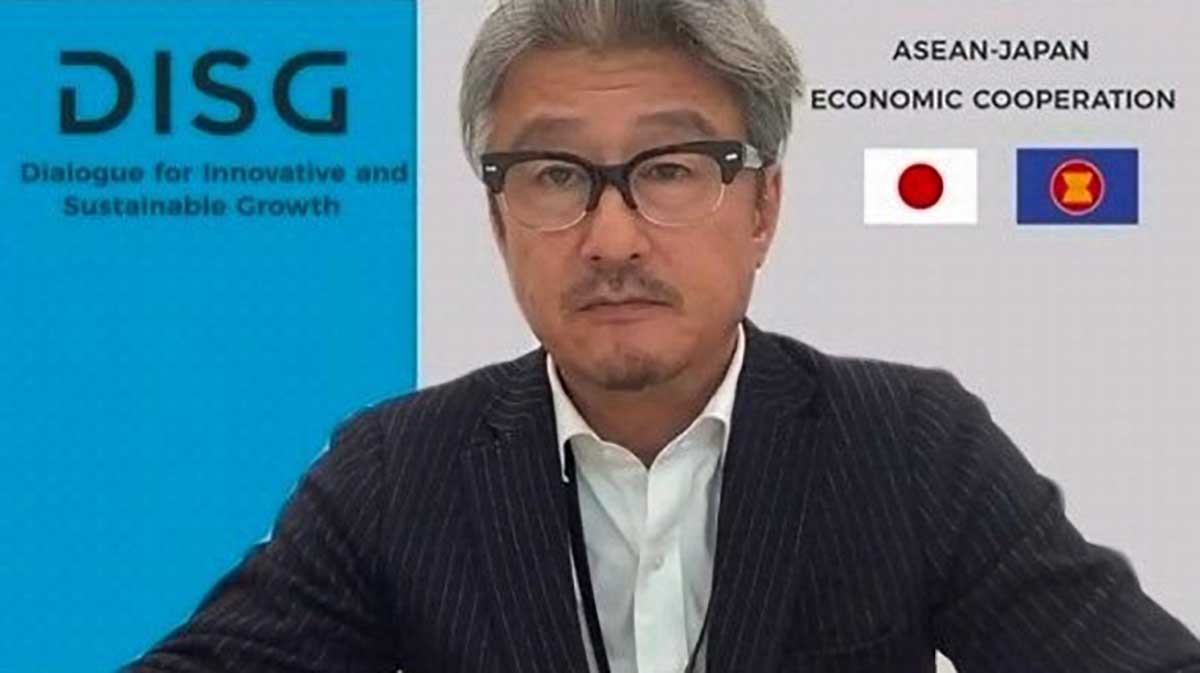
Smart City in Deltamas City, Indonesia
Mr. Hirose Masayoshi, General Manager, Social Infrastructure Development Department, Infrastructure & Healthcare Division, Sojitz Corporation, Japan, introduced about his company and activities in Smart City field. Sojitz is a trading company with comprehensive strengths in trading and investment as well as its new functions to continuously expand the business areas. The company was established in 2003, comprising 400 consolidated subsidiaries in Japan and overseas which has developed a wide range of businesses and growing projects in many different countries and regions around the world. The seven divisions of Sojitz including Infrastructure & Healthcare; Aerospace & Transportation Project; Metal, Mineral Resources & Recycling; Automotive; Chemicals; Consumer Industry & Agriculture Business; and Retail & Consumer Service, are organized in accordance with functions, industrial fields, products, understanding of social needs as well as creating high quality of business opportunities.
The division of Infrastructure and Healthcare of Sojitz has several business areas such as urban development, IT and telecom infrastructure, energy, solar plant, and medical healthcare. This time, the departments of urban development, IT and telecom, solar and clean energy have jointly contributed to the smart city program in Deltamas city and Metro Jakarta. Deltamas is one of the world largest urban development industrial parks, partnering between Sojitz and Sinarmas for nearly 30 years. The total area is 3200 hectares equivalent to 32 km2. Deltamas is divided into 2 areas (i.e., urban development area and the industrial park area). The urban area is 2200 hectares (22.0 km2), separated into residential 11%, commercial 13%, Green and water 19%, and others 16%, including governmental offices. The industrial area is 1000 hectares equivalent to 10.0 Km2, covering 160 factories and facilities, and is still expanding. As for the accessibility, Jakarta Toll Road (South) and Jakarta High-Speed Railway (North) are both under construction and will undoubtedly improve access to the Deltamas city.
The geographical location of Deltamas city is in Jakarta and Bekasi city which is located in the center of the corridor. Therefore, Sojitz defines the concept of the city as “Transit Ready Downtown”, of the integrated industrial hub in the heart of Bekasi-Karawang Corridor. As the first step to embody Sojitz’s vision, early this year in Deltamas, Sojitz has executed a preliminary feasibility study backed by METI, Japan in setting up target objectives and what needs to be done for Deltamas as a smart city. As a result, it was concluded that Deltamas should be practiced as a concept showcase of smart city by deploying full concepts and narrowing down to 4 major segments focusing on digital, green, security, and mobility.
For Digital as a data-driven city, Deltamas has a variety of components such as commercial, residential, medical, education, governmental and industrial. Sojitz wishes to integrate the networks and connect them digitally to create a self-sustained township, one-stop living city, as well as hub of all activities. Digitalization enabled by sensors, CCTV and devices must be in the lead, followed by data collection from these devices, which are controlled by the Intelligent Operation Center. For Green, Sojitz presented the use of LED lights, controlled by an environmental sensor that will contribute to CO2 reduction as well as prediction of hazards weather situations. The system devices are installed everywhere in the city, along with streetlights operating through a cloud wireless network to monitor and manage the central operation center. Regarding Security for residential areas, Sojitz has deployed private pedestrian way between Cikaran Japanese School and residential space via alma and provided security system for the school children and their parents such as application for face recognition. Parents can also monitor and check their children's status via application developed by Sojitz’s subsidiary so-called “P.T Digital Instincts Teknologi (DIT)”. For Smart Security, Sojitz intends to enhance and apply smart security center to adapted overall in Deltamas city such as AI camera, digital signage, integrated system with mobile phone application could be core tools and controlled by the Deltamas’s intelligent operation center.
Lastly, for Mobility, this area requires immediate action. The Deltamas’s development has intensified the traffic inflow/outflow and movement of population. As a result, proper traffic monitoring and control using innovative technologies is required to avoid the extraordinary congestion for which Sojitz has some related solutions. In this regard, Sojitz is ready to learn from the market players from both Japan and local ones. In conclusion, the Sojitz’s smart city design was emphasized with its continued improvement. Sojitz is also open to any kinds of proposals, suggestions, and practical advice for further cooperation/collaboration in various areas that are not limited to the aforesaid digital, green, security, and mobility.
(Q&A Session: Q1)
Market Attractiveness and Potentials of Southeast Asia
We have no doubt about the potential of Southeast Asia. We can expect demand due to demographic dividend, as people in this region are very keen on the new technologies that are one of the most important key elements for innovation.
(Q&A Session: Q2)
The Company’s Selling Points and Future’s Expansion Plan
Deltamas city is one of the most developed urban smart cities in Southeast Asia. The city has not only an industrial area but also a commercial and residential area. Another advantage is that within the city, there is the Bekasi city hall, which could be deployed with various types of technologies to serve the demands in Deltamas.
(Q&A Session: Q3)
The Company’s Expectation for the Audiences of this Webinar
As explained in the presentation, we need partners to achieve and share our vision for smart city Deltamas so we would be really happy if we could have the contacts from many potential partners.
(Q&A Session: Q4)
The Company’s Expectation for the Support from the Japanese and ASEAN’s Government Sector
We do need support from the government while facing ongoing difficulties in the region. We may need a sandbox in which we could deploy various types of technologies without any obstacles due to local regulations.
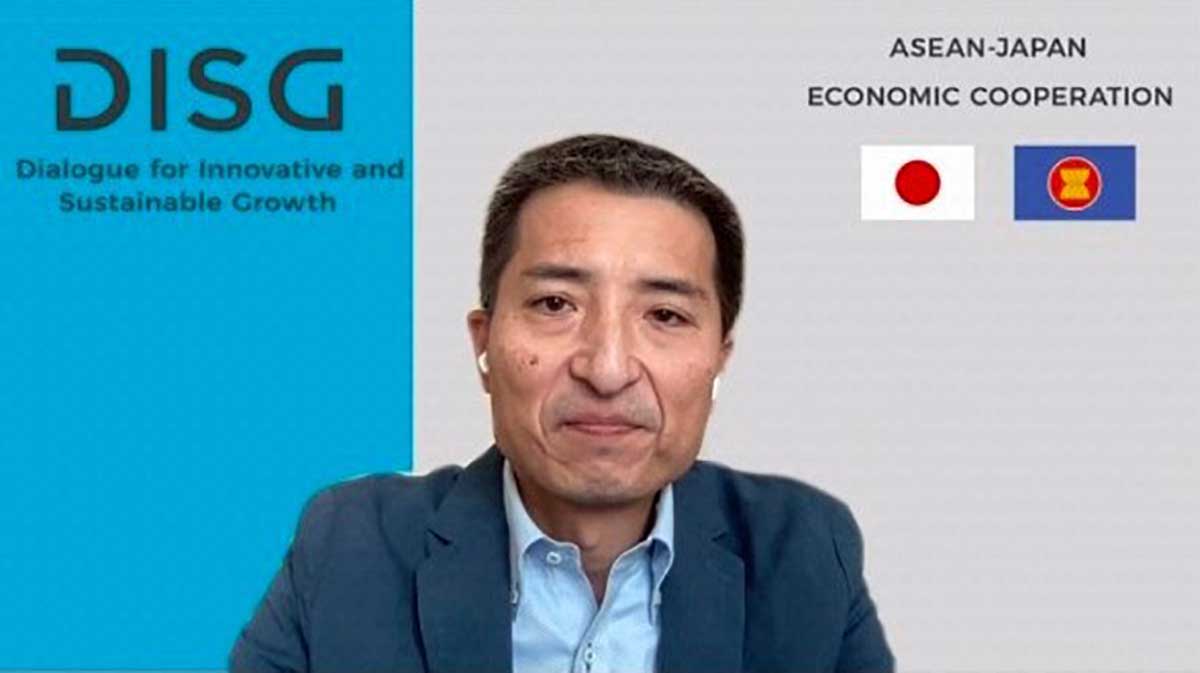
Sustainable Urban Development in Binh Duong, Vietnam
Mr. Suyama Shinji, General Manager, Project Management Group, International Business Strategy Headquarters, Tokyu Corporation, Japan, introduced about his company and activities in Smart City field. Tokyu Corporation is a company producing total lifestyles mainly in Tokyo with 3 core businesses (i.e. Transportation, Real Estate and Life-Service). One example of Tokyu’s development project is Tokyu Tama Garden City; a total area of 5000 hectares which is located in a suburb in Tokyo and has been developed for over 70 years. In 2012, Tokyu expanded its business to Binh Duong City, located 30 kilometers from Ho Chi Minh City in Vietnam. This total area is approximately 1,000 hectares with population goals of 125,000 persons in the future. Tokyu also established a joint venture with a local company named BECAMEX IDC for working on urban development with Tokyu's expertise acquired by the development of Tokyu Tama Garden City. Since 2012, Tokyu has been urban developing with city’s core businesses.
Noting its great achievement, some of Tokyu's projects in urban development were introduced by focusing on sustainability. First, "MIDORI PARK” is the biggest residential area in the city with a plan to develop over 9,000 units of condominiums. Its development concept is "Living in Green," an area full of greenery by reusing existing natural resources as much as possible. Next project is the commercial area "Hikari", which opened in 2015 and now its expansion area is under construction with expected completion this Winter. The development concept of this area is "Sustainability”. Three main features of the Hikari project were also presented (i.e. edible landscape, aquaponics, and composting), along with the plan of restoring solar panels and implementing circular economy model in this project.
Residential project so-called “SORA gardens II” which was completed in May 2021, is the Binh Duong’s first condominium with smart home system for all units. The residents can control door locks and appliances remotely by using a smartphone. To solve potential problems caused by traffic congestion in Binh Duong City, Tokyu aims to promote the Modal shift by using Japan’s expertise of public transportation named “Kaze Shuttle” with three main focuses; (i) ensuring safety by providing Japanese bus-style; (ii) providing high accessibility and hospitality; (iii) making it possible to become environmentally friendly by using Compressed Natural Gas (CNG) Bus. In addition, Tokyu is now planning to offer Mobility as a Service known as “MaaS” by developing all-in-one application where users can search, book, and make payment for various transportation modes based on their needs, enabling to accelerate the modern city. The ongoing MaaS Project in Japan was also introduced, such as Tourism-oriented MaaS (Izuko) 2020 Nov – 2021 Mar [Phase3] and MaaS for commuters (DENTO) 2021 Jan – 2021 Apr, which are the demonstration experiments, in hope of being experienced in Vietnam as well.
(Q&A Session: Q1)
Market Attractiveness and Potentials of Southeast Asia
The economic growth in Southeast Asia is very attractive particularly in Vietnam, which has maintained a high economic growth rate at around 6% per year before the Covid-19 pandemic. Vietnam’s energy is expected to keep going in the future as well. Vietnam is also an attractive market to Japanese companies due to its political stability and its affinity with Japan.
(Q&A Session: Q2)
The Company’s Selling Points and Future’s Expansion Plan
In Binh Duong City in Vietnam, we are not only developing a single building, but also, we are promoting urban development from a long-term perspective. Therefore, we believe that our business not only focuses on constructing building but also puts efforts into developing the area by various measures such as undertaking condominium management and holding events that are unique to our project. We are also operating a route bus business to realize TOD (Transit-Oriented Development) which is another selling point of our business in Binh Duong City.
(Q&A Session: Q3)
The Reasons for Investing in this Region and Cooperation with each Local Partner
There are some reasons to explain why we make investments and cooperate with local partners. To be precise, we could collaborate with local partners, BECAMEX IDC as a developer in Binh Duong province which has a strong network with the government, enabling the company to smoothly obtain licenses, permissions etc.
(Q&A Session: Q4)
The Company’s Expectation for the Support from the Japanese and ASEAN’s Government Sector
We feel that it is difficult to obtain administrative permits because of unclear regulations/laws. However, with the IDC’s cooperation as our partner, we are now able to manage the permissions of the local administrative municipality. However, the process for matters pertaining to the central government may take longer. Hence, we hope the registration procedure would be further simplified by the inter-governmental efforts.
Session 4: Relevant Asia DX Projects between ASEAN and Japan
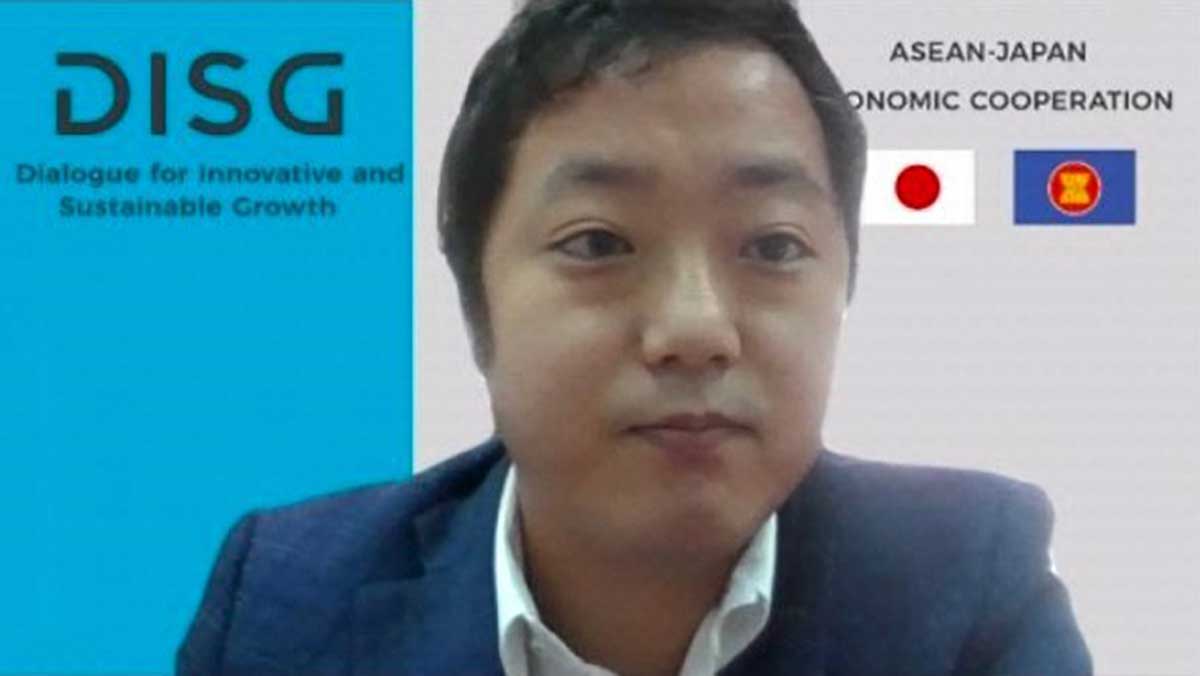
Relevant Asia DX Projects between ASEAN and Japan
Mr. Wada Yuhei, Chief Representative, AMEICC Secretariat, introduced about the AEM-METI Economic and Industrial Cooperation Committee (AMEICC) and relevant Asia DX Projects. AMEICC has its mission to promote cooperation between ASEAN and Japan. The main activities of the AMEICC also include the discussion with Ministers in ASEAN/Mekong Region with active participation in the regular AEM-METI Consultations by reporting its activities and making recommendations to Ministers. In addition, the AMEICC also organizes the Mekong-Japan Economic Ministers Meeting annually and facilitates discussion to strengthen Mekong-Japan cooperation. The second activity is to hold the sectoral working groups such as Automotive Industry, Chemical Industry, and SME, etc. The third activity is of importance for today’s webinar as to promote ASEAN-Japan cooperative projects in a variety of fields such as financial support for pilot projects, supply chain, investments, human resource development, etc. Amongst others, the AMEICC’s support for Asia DX projects between ASEAN-Japan was introduced. Under this scheme, the AMEICC would provide financial support under the funding of METI, Japan to pilot projects between ASEAN and Japanese companies so-called Asia DX projects, with conditions to utilize digital technology in addressing socio-economic challenges in the region, in cooperation with the Japan External Trade Organization (JETRO). Since 2020, Asia DX projects have been initiated, and 40 projects have been adopted in Southeast Asia, in 2020 and 2021, in various fields such as Medical & Healthcare, Agriculture, Fisheries, Mobility, Tourism & Logistics, Environment & Energy, and Manufacturing & HR.
According to today’s theme, the Asia DX projects related to Smart City were introduced mainly in the field of Mobility. The first project is conducted by Japanese company named SmartDrive Inc. (in Malaysia) partnering with local company named Management & Science University (MSU)/Garisan Industries Sdn Bhd. In this project, SmartDrive has experience in Japan in research and development which provide simulations to be conducted on the optimal placement of EV charging stations. This is a cutting-edge technology which is useful for new mobility world. SmartDrive also builds the data platform and aims to create new services to promote EVs (e.g. reservation applications for EVs/ Charging stations, providing EV car sharing, and an electronic payment systems with point rewards).
The second project is promoted by Willer Inc. (in Vietnam) partnering with local company named Renaissance Vietnam, Inc., etc. Willer Inc.; a well-known transportation company in Japan would demonstrate highly convenient shared AI on-demand bus service. Users could use this service to book a virtual bus stop using a mobile application, and through this application the users could identify a virtual bus stop within 200m walking distance. Moreover, this application could determine the optimal route and inform the users of the exact planned ride-off time.
The third project is conducted by Mitsubishi Corporation (in Brunei) partnering with local company named Dart Logistics Sdn. Bhd. (similarly to Grab or Gojek). This project makes operational demonstration of the 1st shared shuttle service in Brunei. With this service, the users could make booking via the smartphone application. The service utilizes an algorithm that allows multiple passengers to share a ride efficiently. Fares are also expected to be cheaper than the existing ride-hailing services in the future. This pilot project would positively give the new alternative for the users.
The last project is promoted by Broadleaf Co., Ltd. (in the Philippines), partnering with a local company named Angat Pilipinas Transport Cooperative. This project would provide DX transportation service business using e-tricycles as a model for developing countries. This platform could support drivers in operation, in addition to making fares cashless and accurate ride reservations. It aims to develop businesses through optimizing operational plans, finding new needs, and making advertisements for nearby businesses by analyzing usage data to apply to other businesses’ expansion.
(Q&A Session: Q1)
How to see detailed information of other projects under Asia DX Program through DISG Website
The suggestion would be to visit the DISG’s website (https://ameicc.org/disg) for further details of Asia DX projects in each AMS. The viewers are able to see news and updates especially the latest information as of 3 Aug 2021 on Asia DX projects for the results of 2nd Batch of Asia DX project and 40 projects selected in total (https://ameicc.org/disg/news/2021-08-03.php). Based on this latest information, the viewers could see each project in each AMS with its project name, Japanese company’s name, local partner’s name as well as type of business with more details of project outline.
(Q&A Session: Q2)
The Next Application Opportunity for Private Companies
As explained in the presentation, Asia DX projects are implemented under the AMEICC support through the fund from METI, Japan. So far, we have received JPY1 billion (equivalent to approximately USD10 million) which have been utilized almost all. The additional funding is required for the next application. However, it is expected that, under the new Japanese Prime Minister Kishida Fumio’s administration, the new economic package would be instructed to be arranged within this year. If there would be additional budget from METI, the next application would probably be opened next year which would be sufficient time for applicants to prepare and apply. The updated information would be timely posted on the DISG’s website and its newsletter. Please check our updates.
(Q&A Session: Q3)
Way for Private Companies to Get Financial Support for this Asia DX Program
Based on the conditions of previous application this year, the AMEICC can support up to JPY30 million (equivalent to approximately USD300,000) per company for SMEs whereas for the large enterprises, the support would be up to JPY10 million per company. Our support focuses on SMEs especially the startups. Please note that there are also some possibilities to change the conditions in the next opportunity.



